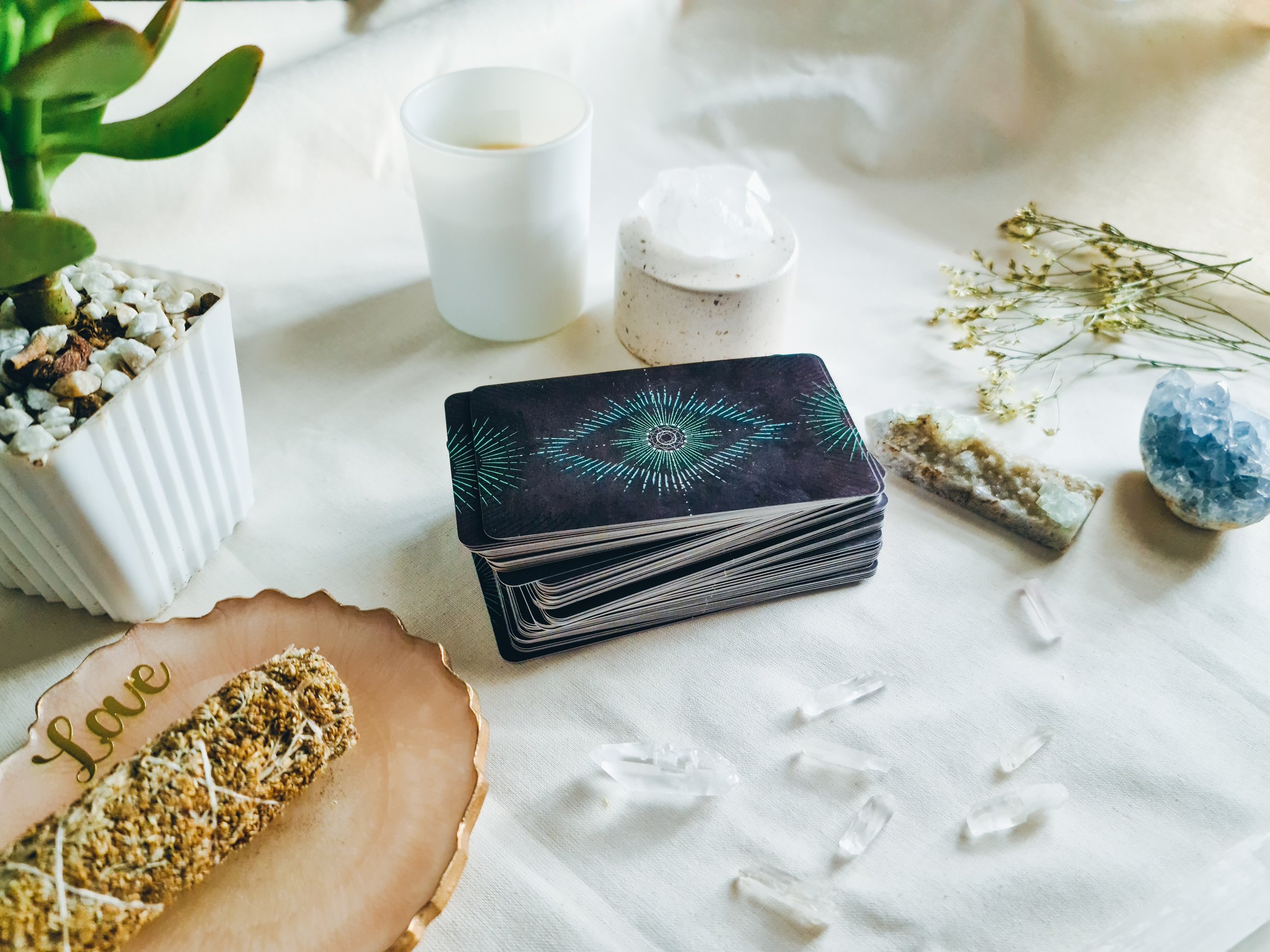Intuitive Guidance
Intuitive Guidance is a spiritual practice that encompasses various modalities such as tarot, psychic readings, and mediumship. These techniques aim to provide insights, clarity, and direction to individuals seeking guidance in their lives.
What is Intuitive Guidance?
Intuitive Guidance is a spiritual practice that encompasses various modalities such as tarot, psychic readings, and mediumship. These techniques aim to provide insights, clarity, and direction to individuals seeking guidance in their lives. Practitioners of intuitive guidance believe in a connection to a higher wisdom or source and strive to access this source to help others navigate through life's challenges and uncertainties.
At its core, intuitive guidance involves tapping into one's intuition, which is an innate, inner sense of knowing beyond the conscious mind. This practice allows individuals to access deeper insights and understanding, often leading to personal growth, self-discovery, and improved decision-making. The various modalities within intuitive guidance each offer unique approaches to accessing and interpreting information, but all share the common goal of providing guidance and support to those in need.
Types of Intuitive Guidance
There are various types of intuitive guidance, each with its unique approach and methodology. Some of the most popular types include:
Tarot Reading: Tarot readings involve the use of tarot cards to gain insights into an individual's past, present, and future.
Psychic Reading: Psychic readings use clairvoyance, clairsentience, and other psychic abilities to provide insights into an individual's life.
Mediumship: Mediumship involves communicating with spirits of the deceased to provide comfort, closure, and healing for individuals seeking connection with their loved ones.
Benefits of Intuitive Guidance
Intuitive guidance offers numerous benefits for individuals seeking personal growth, healing, and spiritual transformation. Some of the benefits include:
Clarity: Intuitive guidance can help individuals gain clarity and insight into their life's challenges.
Personal Growth: Intuitive guidance can help individuals develop a deeper understanding of themselves, their purpose, and their potential.
Healing: Intuitive guidance can provide healing for individuals dealing with emotional pain, trauma, and grief.
Who Might Want to Try Intuitive Guidance sessions?
Intuitive guidance sessions can be beneficial for a wide range of individuals, from those who are spiritually inclined to those who are simply curious or seeking alternative perspectives on life's challenges. Here are some examples of people who might be interested in trying intuitive guidance sessions:
Spiritual seekers: Individuals who are interested in exploring their spirituality, personal growth, and self-discovery may find intuitive guidance sessions helpful in gaining insights into their life's purpose, relationships, and other aspects of their personal journey.
Those facing life changes or decisions: People experiencing significant life transitions, such as career changes, relationship issues, or other major decisions, may seek intuitive guidance to help them navigate these challenges and gain clarity on their next steps.
Grieving individuals: Those who have lost a loved one may find comfort and closure through intuitive guidance sessions, particularly through mediumship, by receiving messages from their deceased loved ones or gaining insights into the nature of the afterlife.
Individuals seeking alternative perspectives: Some people may be interested in exploring alternative viewpoints and methods of problem-solving that go beyond traditional counseling or advice-giving. Intuitive guidance can provide a fresh perspective on life's challenges by tapping into a deeper, more holistic understanding of the individual's situation.
Curious minds: People who are curious about intuitive guidance and its various modalities, such as tarot, psychic readings, or mediumship, may want to try a session simply to satisfy their curiosity and explore the potential benefits firsthand.
Those in need of emotional healing: Intuitive guidance sessions can provide a safe and supportive space for individuals to explore their emotions, traumas, and unresolved issues, often leading to emotional healing and personal growth.
It's important to note that intuitive guidance is not a substitute for professional medical, psychological, or legal advice. Individuals facing severe mental health issues or legal matters should consult with a licensed professional in the respective field. However, intuitive guidance can be a valuable complement to traditional forms of support and can be beneficial for anyone open to exploring alternative perspectives and insights.
How to choose a practitioner of Intuitive Guidance ?
When looking for an intuitive guidance practitioner, it's important to consider various factors such as qualifications, credentials, and experiences to ensure you find a skilled and trustworthy professional. Here are some key factors to evaluate when choosing a practitioner:
Training and education: Look for practitioners who have undergone formal training or education in their respective modality, such as tarot, psychic development, or mediumship. There are many reputable schools, institutes, and workshops that offer training in these fields, and a practitioner with formal education is likely to have a solid foundation in their practice.
Experience: Consider the practitioner's experience in providing intuitive guidance. Experienced practitioners are more likely to have honed their skills and developed a deeper understanding of their craft. You can inquire about their years of experience, the number of clients they have worked with, and any testimonials or reviews from previous clients.
Professional affiliations: Some practitioners may be affiliated with professional organizations, which can serve as an indication of their commitment to ethical standards and ongoing professional development. Examples of such organizations include the American Tarot Association, the International Psychic Association, and the Spiritualists' National Union.
Code of ethics: A reputable intuitive guidance practitioner should adhere to a code of ethics that ensures their practice is carried out with integrity, professionalism, and respect for the client's privacy and well-being. Ask about their ethical guidelines and how they handle sensitive information.
Personal connection: Since intuitive guidance is a deeply personal and subjective experience, it's essential to feel comfortable and connected with the practitioner. Trust your instincts when assessing whether a practitioner is a good fit for you. You may want to schedule an initial consultation or interview to get a sense of their approach, communication style, and overall energy.
Recommendations: Word-of-mouth referrals can be a valuable way to find a reputable practitioner. Ask friends, family, or colleagues who have experienced intuitive guidance sessions for their recommendations. Additionally, online reviews and testimonials can provide insights into the experiences of previous clients.
Areas of expertise: Some intuitive guidance practitioners may specialize in specific areas, such as love and relationships, career guidance, or spiritual development. Choose a practitioner whose area of expertise aligns with your needs and goals.
Remember that finding the right intuitive guidance practitioner is a personal process, and it may take some time and research to find the best fit for your needs. Don't be afraid to ask questions and trust your instincts when evaluating potential practitioners.





